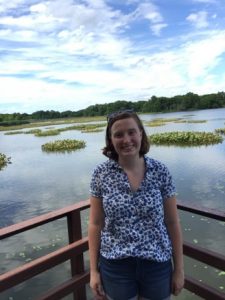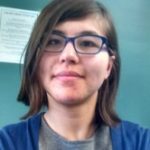Name: Lila Brooks
Class Year: 2019
Major: Russian Studies and International Studies
Hometown: Tesuque, N.M.
Internship Placement: HIAS Pennsylvania
Job Title: Assistant to the Education Coordinator
Location: Philadelphia
What’s happening at your internship?
Every summer, HIAS conducts an education program for refugee students grades K-12 to improve their English while practicing writing, math and art. This year’s program starts July 5, so we are currently very busy talking with students and parents, coordinating volunteers and helping teachers prepare for classes. Most of my work focuses on communicating with our large volunteer base to ensure that the teachers have the support they need in the classroom. My other duties also include assisting in English classes and conducting home visits to clients’ houses to discuss education-related issues.
Why did you apply for this internship?
I found this internship through LILAC’s career services and was struck by how well it fit my interests in refugee and immigration policy as well as education. After interviewing at HIAS, I was impressed with the staff’s dedication to their work and loved the environment that such a small team of workers cultivates. I knew that at HIAS I would see the wide range of refugee aid work while also receiving one-on-one mentorship from the staff.
What has been your favorite part of this internship?
My favorite part of this internship has been working with the students enrolled in our summer program. Their eagerness to learn and openness about their experience as English learners make them exciting and easy to work with. Most recently, I was given the opportunity to teach the beginner English class that HIAS offers each week. Working with students at this level is a huge challenge in the creative methods of communication that it requires but also very rewarding in that every new word or saying a student learns is a huge accomplishment. The goals of these classes is not to produce fluent English speakers, as this is often unrealistic, but rather to give students the tools they need to achieve independence and self sufficiency in the U.S. I find that teaching with this objective in mind creates classes that are much more applied and hands-on than the average language class. Watching students learn within this context and become more confident in their language use is hugely rewarding and motivating.
What is something you have learned from your internship that you didn’t expect?
One of the most unexpected things I have learned is the importance and challenge of communication. Whether it is organizing 30 volunteers for the summer education program, communicating with a beginner English speaker, or trying to speak to a Ukrainian client in my broken Russian, all of my work at HIAS revolves around communicating with others. Although communication is an important skill in all areas of life, it seems especially crucial in refugee aid where one finds both metaphorical and physical boundaries that break down lines of communications. Speaking to clients, often through an interpreter, has taught me to be specific with my words and to never take for granted the aspect of life in the United States that appear simple to an American. These experiences have made me more aware of how we present and communicate ourselves to others and the complex outcomes when these communications break down. Although unexpected, this is one of the most valuable skills I have gained working at HIAS and believe that it will be easily transferable to my classes at Bryn Mawr and future employment.




